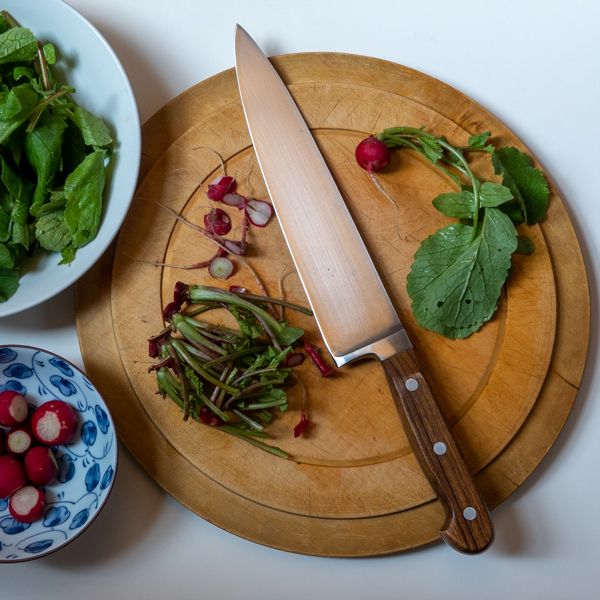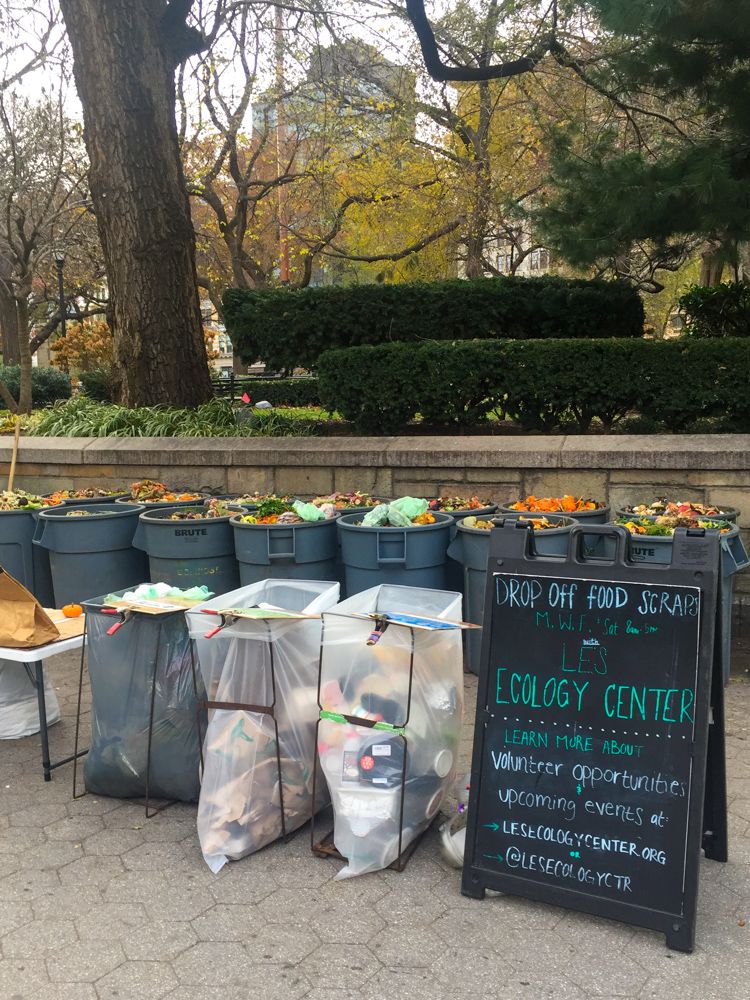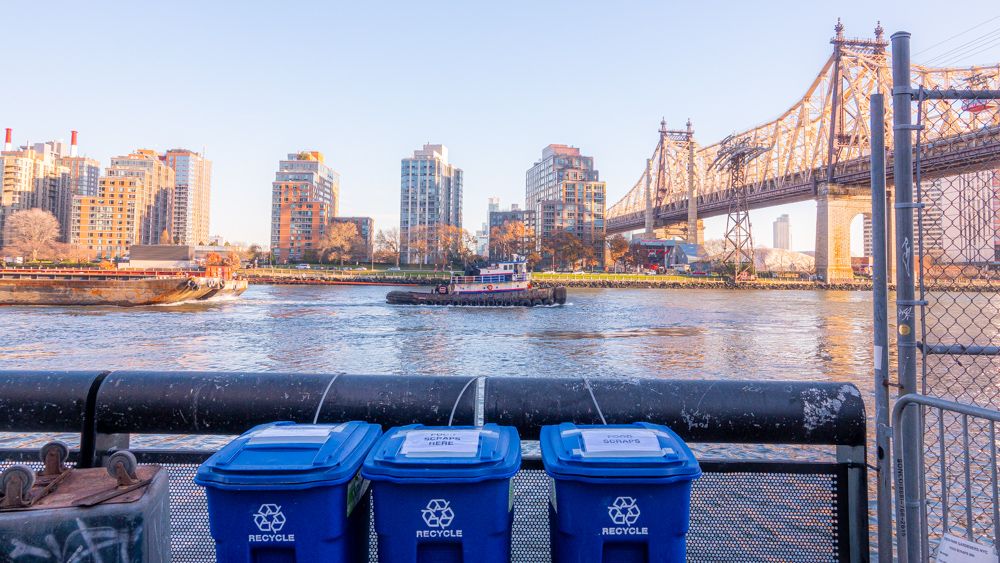I started composting kitchen food scraps this year. It's easier than I thought and I'm never turning back. Here's how I make it work in my NYC apartment.
It all started when our super went on vacation last July. We live in a small, four-unit building, and, like many apartments in the city, ours is quirky. That means when our super took time off during two of the hottest weeks of the year, the building's garbage room did too.
During this hiatus (which weirdly exactly coincided with Chester's being away for a jazz workshop), tenants were instructed to leave trash in black garbage bags on the curb on any of the three weekly collection days for our street. This didn't seem like a very appealing prospect during the dog days of summer. We were in the habit of re-using small plastic shopping bags as trash can liners and taking everything out to the garbage room daily before odors could develop. But now I pictured storing a stinking, quarter-full large black trash bag in our apartment for a few days, before leaving it half-full on the curb. There had to be a better way.
This is when necessity nudged me in the right direction.
I'd noticed that the two farmers' markets I liked to visit both had compost drop-off stations. It was peak season for New York State sour cherries and I'd been meaning to make a batch of maraschinos--why not drop off my compost and pick up some fruit at the same time?

Flash forward six months and I'm a committed composter. (And Chester, having returned from his two-week workshop to the puzzling sight of a collection of peach pits and spent teabags in the freezer, is now fully on board too.) Here are a few things we learned along the way:
Why Compost?
I'd been vaguely aware that there were environmental benefits to composting. Turning food scraps into fertile garden soil instead of shipping them off to landfill could only be a good thing, right? But, as I soon learned, there's much, much more to it.
If you send your banana peels and coffee grounds, etc. to oxygen-deprived landfill, they'll decompose anaerobically, releasing the greenhouse gas methane, which has a significantly larger Global Warming Potential than CO2. But put that same banana peel and coffee filter into a well-aerated compost pile and they'll actually lock in carbon from the air as they break down.
What to Compost
Guidelines will vary from program to program, so it's best to check in with the host organization on what they do and do not accept (click here for GrowNYC's). Animal products and food containing fats and oils are usually a no-go. Fruits, vegetables, grain products--basically anything non-greasy that came from a plant--are all good.
Where to Compost in NYC

If you live in a large apartment building with many tenants interested in composting, building management can set up centralized collection.
But if you're in a smaller building like we are, your best bet is to drop off your scraps at one of many GrowNYC locations dotted through the city. Click through to a map with a schedule here.
Or for the adventurous, you might consider indoor vermiculture. Yes, folks, that's composting with live worms. (Erm, I don't think we have the closet space for that.)
Collecting and Storing
That first week I started composting, I stored all my scraps in the fridge a plastic bag I knotted closed at the top. They were a bit squishy to transport and stuck to the sides of the bag when I went to dump them out. The knot was hard to untie too. One of the compost concierges at Dag Hammarskjold Greenmarket saw me in my messy struggle and tactfully advised me to try a paper bag (which is also compostable) stored in the freezer--no emptying out required. I experimented and found paper bags to be too leaky for my liking. But the deep-freeze method was a definite improvement. I've got my personal system down now: a Ziploc bag (which I continue to wash and reuse until it falls apart) stored in the freezer.
Unexpected Benefits
Since our household started composting, our (landfill) trash output has been drastically reduced. Instead of taking out a bag daily, we only take out a small bag once or twice a week. And because there's nothing organic in it to go bad, there's no rush.
Getting out to the greenmarket on a regular basis for compost drop-off has also encouraged us to pick up more fresh, local produce, so we're eating better too.
We've also become motivated to reduce the amount of usable vegetable trimmings we've been wasting (save that freezer space!). We started going to Zero Waste Chef for recipes using parts that might have otherwise been compost. Broccoli stems, radish greens---I can't believe we used to throw those out.
